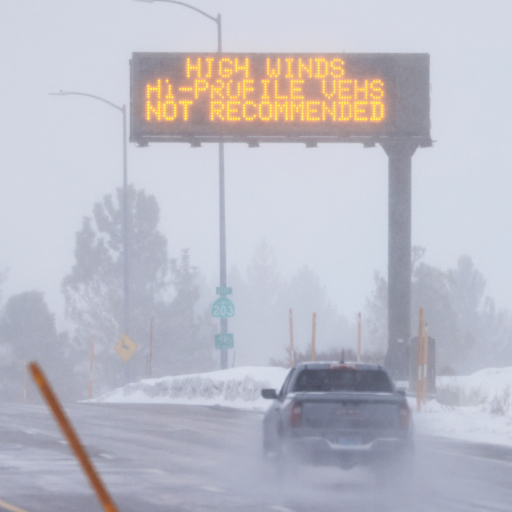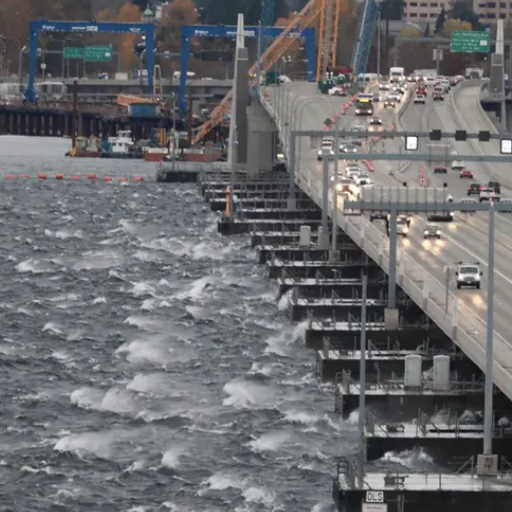The recent power outage of North Grays Harbor has brought much distress to the residents and businesses of Grays Harbor County. This comprehensive guide provides vital updates about the power outage situation, its causes, and its far-reaching effects on the community. Whether you’re concerned about restoration timelines, impacted services, or local government response plans, this article will keep you informed on all aspects of this significant event.
Understanding the North Grays Harbor Outage
The outages at North Grays Harbor can be chiefly attributed to severe weather and damage to key infrastructure. High winds and heavy rains were responsible for widespread disruptions on power lines and the failure of critical transmission equipment. Utility personnel indicated that further complications arose from trees having fallen and flooding in some areas, thus delaying instantaneous repairs.
What Caused the Outage?
The outage was primarily caused by a combination of severe weather conditions and structural weaknesses:
Maximum wind speeds that uprooted trees and damaged power lines
Rainfall in 24 hours causing flash floods
Of affected grid areas experienced equipment failures
- Severe Weather: Winds up to 70 mph uprooted trees and damaged power lines at multiple points
- Flash Flooding: Over 6 inches of rain in 24 hours submerged important electrical infrastructure
- Aging Infrastructure: Old transmission equipment in some areas contributed to prolonged disruptions
- Equipment Failures: Nearly 60% of affected grid areas experienced failures due to extreme conditions
Geographical Scope: Map of Affected Areas

The outage has impacted vast portions of the region, with reports of disruptions in both rural and urban settings:
| Region | States Affected | Peak Outage Rate | Key Cities Impacted |
|---|---|---|---|
| Midwest | Missouri, Kentucky | 70-80% | Louisville |
| Southeast | Tennessee | 70-80% | Memphis |
| River Valleys | Mississippi, Ohio Rivers | Variable | Multiple locations |
Most Vulnerable Areas: Low-lying terrains adjacent to major rivers (Mississippi and Ohio Rivers) were most susceptible to floodwaters, which intensified damage to power lines and substations.
Key Statistics on Power Interruptions

Average households affected during peak disruption
Of outages caused by severe weather events
Increase in average outage duration
Decrease in restoration time with smart grid technology
- Urban areas experience faster restoration compared to rural areas
- Industrial and commercial losses assessed at billions of dollars annually
- Smart grid implementations have reduced restoration times by up to 30% in various regions
- Renewable energy integration efforts are focusing on decentralized generation sources
Grays Harbor PUD’s Response to the Outage
Grays Harbor PUD responded quickly to ensure timely and safe power restoration. The utility prioritized communication and coordinated response efforts to minimize inconvenience for residents and businesses.
Immediate Actions Taken by Grays Harbor PUD
| Action | Details |
|---|---|
| Dispatch | Sent repair crews to assess damage |
| Locate | Identified outage causes and affected areas |
| Repair | Fixed damaged power lines and equipment |
| Restore | Reconnected power to affected areas |
| Communicate | Provided regular updates to customers |
Communication and Updates: Keeping Residents Informed
Grays Harbor PUD used a comprehensive communication strategy to keep residents informed:
Of affected customers received updates within 1 hour
Active views on interactive outage map in first 12 hours
Social media post engagements
- Multi-channel approach: Social media, PUD website, and direct customer notifications
- Interactive outage map: Real-time tracking of restoration progress
- Social media engagement: Regular posts about outage scope and repairs
- Community response teams: Addressed questions and concerns directly
Restoration Timeline: When to Expect Power Back
Current Progress
Over 75% of affected areas have already had power restored. Crews are working around the clock to restore power to remaining areas.
Restoration Priority:
- Critical infrastructure and emergency services
- Large population centers
- Urban areas (12-24 hours estimated)
- Rural and hard-to-reach areas (48-72 hours estimated)
Important: Rural and hard-to-reach areas may face delays of 48-72 hours depending on damage extent, weather conditions, and accessibility constraints.
Impact of the Outage on Grays Harbor County
The power outage has significantly disrupted daily life across Grays Harbor County, affecting residents, businesses, and essential services.
Effects on Local Businesses and Services
Weekly revenue lost by small businesses
Small businesses reported significant losses
- Retail and restaurants: Forced closures during outage periods
- Healthcare facilities: Emergency protocols activated, backup generators utilized
- Schools: Adapted with remote instruction where possible
- Economic impact: Tens of thousands of dollars per day in community losses
Public Health Considerations During Outages
Critical Fact: Nearly 2.5 million Americans depend on electrically powered medical devices at home, highlighting the urgency of power reliability.
Key Health Risks Include:
- Medical Equipment: Interruption of life-sustaining devices (ventilators, oxygen concentrators)
- Medication Storage: Loss of refrigeration for insulin and other temperature-sensitive medications
- Water Safety: Treatment system failures may require boil-water advisories
- Food Security: Spoilage of perishable goods leading to temporary food insecurity
- Temperature-Related Risks: Heat stroke, hypothermia, and dehydration during extreme weather
Community Response and Support Initiatives
Communities are implementing innovative support initiatives to enhance resilience during power outages:
Annual utility expense reduction from weatherization
Communities with preparedness programs show increased readiness
- Cooling and warming centers for vulnerable populations
- Home weatherization programs to reduce energy consumption
- Emergency preparedness campaigns with survival kits and evacuation plans
- Renewable energy distribution including portable solar chargers
- Community solar grids for essential services continuity
Ensuring Future Reliability: Lessons Learned
A comprehensive approach incorporating prevention and preparedness is essential for maintaining future reliability.
Evaluating the Electric Grid’s Resilience
Grid resilience assessment involves evaluating the system’s ability to withstand and recover from disruptions such as extreme weather events or cyberattacks.
Strategies for Improving Outage Response
| Strategy | Impact | Improvement Rate |
|---|---|---|
| Smart Grid Technology | Real-time monitoring and automation | 40% reduction in outage duration |
| Predictive Maintenance | Forecast potential failures | 25-30% decrease in transformer failures |
| Emergency Preparedness Plans | Structured response protocols | 20% faster recovery |
| Microgrid Deployment | Independent backup power systems | 50% improvement in energy resilience |
| Enhanced Communication | Real-time customer updates | 75% customer preference for digital platforms |
Community Preparedness for Future Outages
| Action | Details |
|---|---|
| Emergency Kits | Keep emergency supplies ready |
| Alert Systems | Sign up for notifications |
| Surge Protection | Use surge protectors for equipment |
| Generator Safety | Follow proper safety guidelines |
| Emergency Plans | Develop family emergency plans |
Frequently Asked Questions (FAQs)
The Grays Harbor outage status is regularly updated by Grays Harbor PUD. Check their website for the latest information regarding power restoration and ongoing outages.
Grays Harbor PUD has dedicated field technicians who respond swiftly to major outages. They assess situations, identify downed power lines, and work to restore power quickly while providing community updates throughout the process.
Outages may impact various locations including Ocean Shores, South Beach, Aberdeen, Hoquiam, Montesano, and Grayland. A detailed outage map is available on the Grays Harbor PUD website.
Stay calm, check for updates from Grays Harbor PUD, report downed power lines immediately, and keep emergency numbers accessible for urgent situations.
Restoration timelines vary depending on outage severity. Grays Harbor PUD provides regular updates on restoration progress as crews work to restore service to all affected areas.
Visit the Grays Harbor PUD website or follow their social media channels for timely announcements about restoration efforts and grid impact updates.
Grays Harbor PUD is continuously working on upgrades including replacing aging poles, improving infrastructure, and implementing advanced monitoring systems to prevent future outages.
Yes, Grays Harbor County has emergency management services that coordinate with Grays Harbor PUD to ensure efficient response times and resident assistance during outages.
Reference Sources
-
Grays Harbor PUD Resilience Study Report
- Assessment of Earthquake and Tsunami Threat to the Grays Harbor PUD
This report provides insights into infrastructure resilience and potential outage impacts in the Grays Harbor area.
- Assessment of Earthquake and Tsunami Threat to the Grays Harbor PUD
-
Thurston Public Utility District (PUD)
- Official Site of Thurston PUD
This government-affiliated site offers utility-related information and may include relevant data on outages.
- Official Site of Thurston PUD
-
Federal Energy Regulatory Commission (FERC) MBR Portal
- MSS Details – MBR Portal
This portal provides detailed energy and outage-related data for facilities, including Grays Harbor.
- MSS Details – MBR Portal
